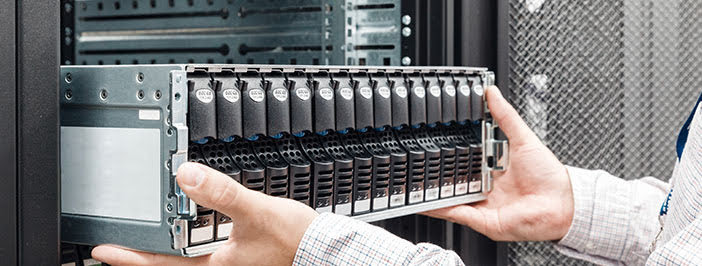If there’s a single word that explains what is necessary for a company to succeed, it’s undoubtedly “data.” By utilizing the right data, you can do everything from pinpoint-targeted marketing to building accurate profitability models.
Of course, a dedicated data center is necessary to house business information and applications. As it turns out, what you know about these centers can have huge implications for your business.
First up: What is a data center?
You could say that a data center is simply a centralized location where data is stored. However, that ignores the complexity of these tech necessities. While it certainly is all about data and they are centralized, their real purpose is to collect, process, house, distribute and allow access – for the right people – to huge amounts of data.
To accomplish the Goliath-sized feat, data centers house computer systems and an assortment of additional components. These include storage systems, telecommunications and even environmental controls to keep equipment running at peak performance.
Of course, having all this information and hardware in one place raises security questions. After all, 2017 was considered the worst year ever for data breaches, and some estimates say ransomware attacks were four times more prevalent than reported. Fortunately, modern cybersecurity tools are adept at keeping data centers protected.
Data centers in the cloud
Small and medium-sized businesses (SMBs) are always striving to be more efficient, but questions about the cloud have caused some budding entrepreneurs to overlook this efficiency-boosting technology. This is a serious concern considering how many organizations are moving their data centers into the cloud.
The cloud allows businesses to avoid the costs related to onsite data centers. It accomplishes all the same tasks as onsite options. It also provides a scalable option at a fraction of the cost you’ll see from adding new hardware. The biggest concern with the cloud, however, rests in the area of cybersecurity.
As it turns out, many private cloud options provide improved data security and increased resilience against distributed denial of service (DDoS) attacks. With security concerns abated, there’s few reasons to go the traditional route with data centers. Any organization planning for future IT needs would benefit from this proactive move.
Benefits of data center upgrades
Hosting your data center in the cloud could certainly be considered an upgrade, but there are also a variety of other improvements that should be considered. Even if you plan on keeping this function onsite, specific upgrades can help you with everything from cutting IT costs to reducing downtime.
Of course, it’s pointless to list the benefits of data center upgrades without explaining exactly how to go about these upgrades. Here are a few hints to guide your way:
Review your disaster recovery plan
This data center necessity isn’t technically an “upgrade”. However, finding flaws in your plan could certainly result in the need for those upgrades. You need to have redundancy within your systems and a disaster recovery plan in place in case something detrimental occurs.
Managed service IT teams
Even if you have a skilled IT professional on staff, it’s unreasonable to think they can provide around-the-clock service. By bringing on a third-party managed service IT team, your data center needs will always be handled in an expedient manner. Additionally, they could find issues or necessary upgrades that your IT pro overlooked.
Replace end-of-use electronics
If your data center isn’t up to date, every other process within your organization will lag. It’s recommended that hardware be replaced when manufacturer warranties end. Of course, some warranties are horrendously short, so a general rule of thumb is replacement every 3-5 years. While you’re at it, you also shouldn’t still be using Windows 7.
Data centers dictate business success
Your data center has a direct effect on everything from customer service to cybersecurity at your organization. You don’t have to be an expert on the subject matter, but a working knowledge can help inform your decisions related to data at your company. These centralized networks play a part in literally every other tech aspect of most businesses, so overstating their importance is next to impossible.


